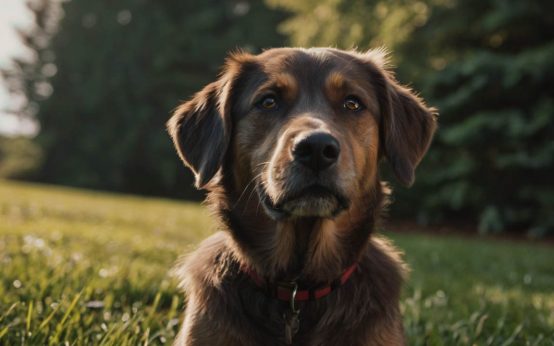The Best Anti Anxiety for Dogs: A Complete Guide to Finding Calm
When your dog is consumed by anxiety, you feel it too. The frantic pacing during a storm, the destructive panic when you leave, the trembling in the vet’s waiting room—it’s a shared distress. This leaves many loving owners on a desperate search for the best anti anxiety for dogs. But with a dizzying array of options, from calming chews to prescription meds, how do you know what actually works?
Let’s follow the story of a woman named Clara and her anxious rescue, Finn. Finn was a sweetheart, but his separation anxiety was severe. Clara tried everything she read about online, buying one “miracle” product after another with no success. She was looking for the best anti anxiety for dogs, but what she really needed was the right combination of tools for Finn.
This guide is your clear, no-nonsense roadmap. We’re going to cut through the marketing hype to explore what truly constitutes the best anti anxiety for dogs. We’ll cover everything from foundational training and environmental aids to over-the-counter supplements and prescription medications, helping you build a comprehensive, effective plan for your unique dog.
What is the “Best Anti Anxiety for Dogs”? It’s Not a Single Product
Here’s the most important thing to understand: the best anti anxiety for dogs is not a single pill, chew, or vest. It is a holistic, multi-layered strategy tailored to your dog’s specific needs. Think of it as a pyramid.
- The Base (Foundation): Behavior Modification & Environmental Management.
- The Middle (Support): Over-the-Counter Aids (Vests, Chews, Pheromones).
- The Peak (Intensive Care): Prescription Medication from a Veterinarian.
You must build a strong foundation before the other layers can be effective. Simply throwing a calming chew at a panicked dog without addressing the root cause is like trying to fix a leaky roof with a single piece of tape.

The Foundation: Behavior and Environmental Anti Anxiety for Dogs
Before you spend a single dollar, start here. In my experience, these foundational strategies provide significant anti anxiety for dogs and are essential for any other treatment to work.
Behavior Modification: The Gold Standard for Dog Anxiety
This is about actively retraining your dog’s brain. The key technique is Desensitization and Counter-Conditioning (DSCC). It means gradually exposing your dog to their trigger at a non-scary level while pairing it with something amazing (like high-value treats). This process slowly changes their emotional response from “fear” to “excitement.” It is, without a doubt, the core of the best anti anxiety for dogs treatment plan.
Enrichment and Exercise: Natural Anti Anxiety for Dogs
A tired, mentally stimulated dog is a less anxious dog.
- Physical Exercise: A good run or a long game of fetch can burn off the nervous energy that fuels anxiety.
- Mental Enrichment: This is a game-changer. Use puzzle toys, snuffle mats, and training games to give your dog’s brain a workout. A 15-minute puzzle session can be more tiring and calming than a 30-minute walk.
The Support Layer: The Best Over-the-Counter Anti Anxiety for Dogs
This is the category most people think of first. These aids can be excellent supports for your foundational training, helping to take the edge off your dog’s anxiety.
Pressure Vests: The Power of a Hug
Products like the ThunderShirt are a fantastic example of a physical tool for anti anxiety for dogs. They work by applying gentle, constant pressure, a technique known as Deep Pressure Therapy.
- How it Works: This “hugging” sensation has a calming effect on the nervous system, much like swaddling an infant.
- Best For: Situational anxiety like thunderstorms, fireworks, and car rides.
- Pro-Tip: Introduce the vest during calm times with lots of treats so your dog has a positive association with it.
Calming Chews and Supplements: Nutritional Anti Anxiety for Dogs
The market is flooded with these. A high-quality calming chew can be a helpful part of your toolkit.
- Key Ingredients to Look For:
- L-Theanine: An amino acid found in green tea that promotes relaxation without sedation.
- Tryptophan: An amino acid that is a precursor to serotonin, the “feel-good” neurotransmitter.
- Herbal Blends: Ingredients like chamomile, valerian root, and passionflower can have mild calming effects.
- CBD: Cannabidiol (CBD) is gaining popularity for anxiety. However, the market is unregulated. It is essential to use a product with a Certificate of Analysis (COA) to verify its purity and potency. Always talk to your vet before using CBD.
Pheromone Products: The Scent of Calm
Products like Adaptil release a synthetic version of the Dog Appeasing Pheromone, which a mother dog produces to calm her puppies. They come as plug-in diffusers, collars, or sprays. This is an excellent, passive way to create a more calming home environment and is a great supportive tool for anti anxiety for dogs.
The Peak: The Best Prescription Anti Anxiety for Dogs
For moderate to severe anxiety, prescription medication is often the kindest and most effective option. This is a conversation to have with your veterinarian.
Let me be clear: medication is not a crutch or a “last resort.” It is a powerful tool that can lower your dog’s panic to a level where their brain is actually capable of learning from your behavior modification training.
Daily Medications for Ongoing Anxiety
These are for dogs with generalized anxiety or severe separation anxiety.
- SSRIs (e.g., Fluoxetine/Prozac): This is one of the most commonly prescribed and is often considered one of the best anti anxiety for dogs medications. It works by increasing serotonin levels in the brain. It can take 4-8 weeks to see the full effect.
- TCAs (e.g., Clomipramine/Clomicalm): Another class of antidepressants that is FDA-approved for treating separation anxiety in dogs.
Situational Medications for Acute Panic
These are used on an as-needed basis before a known trigger.
- Trazodone: Often prescribed for use before vet visits or thunderstorms. It has sedative and anti-anxiety effects.
- Sileo: A unique oral gel that is applied to the dog’s gums. It’s FDA-approved specifically for noise aversion (e.g., fireworks, thunder).
Expert Quote: According to the American College of Veterinary Behaviorists (ACVB), “For many conditions, behavior modification alone is not sufficient. The appropriate use of behavior medication… can be the difference between a successful and an unsuccessful outcome.”

A Case Study: Finding the Best Anti Anxiety Plan for Finn
Clara, Finn’s owner, finally sat down with her veterinarian. Here’s the multi-layered plan they created:
- Foundation: Clara started feeding Finn exclusively from puzzle toys (enrichment) and worked with a trainer on a DSCC plan for her departure cues.
- Support: She used an Adaptil diffuser in her living room to create a calming baseline environment.
- Peak: Her vet prescribed a low daily dose of Fluoxetine.
The change wasn’t overnight. But after six weeks, Clara noticed a difference. The Fluoxetine had lowered Finn’s panic threshold. He was less reactive to her departure cues, which allowed the DSCC training to finally “stick.” The best anti anxiety for dogs for Finn wasn’t one thing—it was the synergy of all three layers working together.
FAQ: Your Questions on the Best Anti Anxiety for Dogs
Q: What is the most effective anti anxiety for dogs?
A: The most effective approach is a combination of behavior modification (training) and environmental management. For moderate to severe cases, the best anti anxiety for dogs plan will also include prescription medication from a vet to make the training effective.
Q: Are there any natural anti anxiety remedies for dogs?
A: Yes. Enrichment, exercise, and pressure vests are all-natural methods. Herbal supplements like chamomile and valerian root can also be helpful. However, “natural” doesn’t always mean “safe.” Always consult your vet before giving your dog any new supplement.
Q: Can I give my dog Benadryl for anxiety?
A: This is a common question, but it’s generally not recommended. Benadryl’s primary effect is sedation, not true anxiety relief. It can make a dog drowsy, but their brain may still be panicking. There are much safer and more effective vet-approved options.
Q: How do I choose the best anti anxiety chew for my dog?
A: Look for products from reputable brands that have undergone third-party testing. Check for a seal from the National Animal Supplement Council (NASC). Read reviews and, most importantly, discuss the specific ingredients with your veterinarian.
Conclusion: Building Your Dog’s Custom Anti Anxiety Plan
The search for the best anti anxiety for dogs ends with the realization that you are not looking for a single product, but a personalized, holistic strategy. It starts with a foundation of patient training and thoughtful environmental management. It’s supported by effective over-the-counter aids like pressure vests and science-backed supplements. And for many dogs, it is made possible by the life-changing support of prescription medication.
Remember Clara and Finn. Her breakthrough came when she stopped searching for a magic bullet and started building a comprehensive plan with her veterinary team. Your dog’s success story will be written in the same way—through a combination of the right tools, professional guidance, and your unwavering commitment. You are your dog’s greatest advocate in their journey toward a calmer life.
Ready to build your dog’s personalized anti anxiety plan? Your first and most important step is to schedule a consultation with your veterinarian. Go in with a list of your dog’s symptoms and your observations. This collaborative conversation is the start of finding the best anti anxiety for dogs strategy that will bring peace back to your home.



 Best Anti Anxiety For Dogs: Complete Guide
Best Anti Anxiety For Dogs: Complete Guide